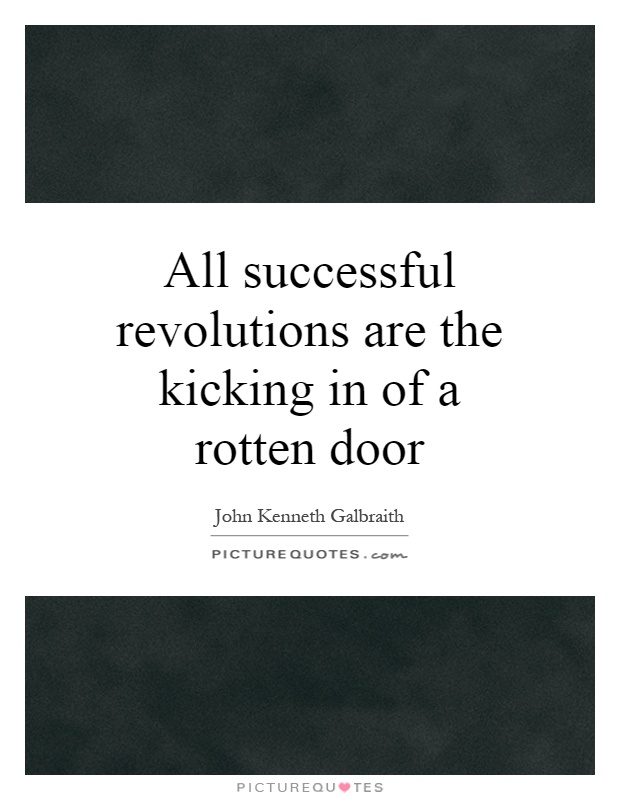All successful revolutions are the kicking in of a rotten door

All successful revolutions are the kicking in of a rotten door
John Kenneth Galbraith, a renowned economist and diplomat, once famously said, “All successful revolutions are the kicking in of a rotten door.” This powerful statement encapsulates the essence of social change and transformation, highlighting the necessity of challenging existing power structures and systems in order to bring about meaningful progress.Galbraith’s words suggest that revolutions are not born out of complacency or contentment with the status quo, but rather from a deep-seated dissatisfaction with the way things are. They are a response to the injustices and inequalities that have festered within society, often hidden behind a facade of stability and order. In order to effect real change, it is necessary to confront these underlying issues head-on, to expose the rot that lies beneath the surface and to demand a more just and equitable future.
Throughout history, we have seen numerous examples of successful revolutions that have brought about significant social, political, and economic change. From the American Revolution to the French Revolution, from the Civil Rights Movement to the Arab Spring, these movements have all been characterized by a collective desire to challenge the existing power structures and to create a more inclusive and democratic society.












 Friendship Quotes
Friendship Quotes Love Quotes
Love Quotes Life Quotes
Life Quotes Funny Quotes
Funny Quotes Motivational Quotes
Motivational Quotes Inspirational Quotes
Inspirational Quotes